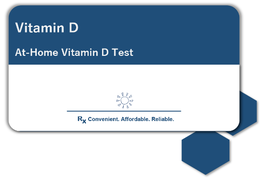Do you know your vitamin D level? Why is it important? Photo by Michele Blackwell on Unsplash Vitamin D is a hormone that helps your body absorb and retain calcium and phosphorus, both crucial for bone health. It also boosts the immune system, lowers inflammation, and promotes heart health. Over the past 20 years, I have measured vitamin D levels for thousands of patients. Most were severely deficient, and almost nobody had levels in the optimal range of 50 – 80 ng/ml (125-200 nmol/L). Normal levels are considered by most labs to be around 30 – 100 ng/ml (75-250 nmol/L). Labs will report your results in either ng/ml or nmol/L, and it's important to note that 1 ng/ml equals 2.5 nmol/L. While you may not be aware that you are deficient, it is possible that your fatigue, bone pain, muscle weakness, immune challenges, depression, or anxiety may be related to low vitamin D levels. What Can You Do?You can get your vitamin level tested in the comfort of your home HERE or have your physician or healthcare provider order the test for you.  Photo by Vitolda Klein on Unsplash If you have a vitamin D deficiency, exposure to sunshine can help maintain good levels, but to raise low levels requires supplementation. This is the one vitamin (actually a hormone) for which there are no foods naturally high in vitamin D. Fortified products like milk and orange juice are available, but you would have to consume them in excessive quantities (gallons daily) to get enough. There is some vitamin D in fish or fish oils, but not enough to rectify a deficiency state. Before retiring this past year, I promoted vitamin D supplementation for the past two decades. Infants were advised to take 1000 IU daily, children 2000 IU daily, and teens and adults 4000 or 5000 IU daily. Not one ever reached levels anywhere near the high range of normal, and sometimes double these amounts were required to get vitamin D levels into the optimal range. Check with your trusted healthcare provider and empower yourself with the knowledge of your vitamin D levels before, during, and after supplementing. It can take months of supplementation to get your levels into the optimal range, and our need for vitamin D is lifelong. Click the link below and receive my professional discount when ordering: In good health, *This article is informational and not intended to diagnose or treat any condition. Review all health decisions with your trusted healthcare provider. *
1 Comment
|
Share with your Friends & Family
Kids First 4 EverKidsFirst4Ever's mission is to educate and inform parents on four fundamental principles for the growth and development of our children. Archives
July 2024
Categories
All
|
Follow: |
Share with your Friends & Family
|
* Doctor Paul & DeeDee Hoover do not diagnose nor treat any medical condition. We may provide information but always check with your trusted healthcare provider before using any information you may get from us or any of the resources we provide.
** The contents of this site are for informational purposes only and are not a substitute for professional medical advice, diagnosis, or treatment. Always seek the advice of your physician or other qualified health care provider with any questions you have regarding a medical condition, and before undertaking any diet, dietary supplement, exercise, or other health program.
TOS
Site powered by MediaCor



 RSS Feed
RSS Feed
